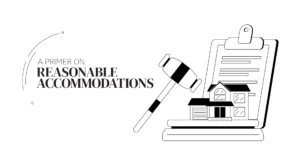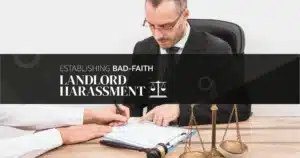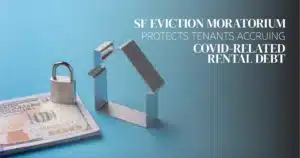Do you think that as a renter, you are at the mercy of your landlord? Then you are gravely mistaken. Many strong legal protections are in place to protect tenants from unfair treatment, unsafe living conditions, and illegal evictions.
Unfortunately, a lot of people operate under this assumption without understanding their tenant rights and responsibilities. If you want to avoid costly mistakes and protect your home, you need to know the law. When you know what you are entitled to and what is expected of you, you can prevent unnecessary conflicts and stand up to your landlord.
Let’s take a look.
What Are the Tenant’s Rights and Responsibilities?
California law has some of the strongest tenant protections in the country. The law protects tenants and encourages landlords to treat you fairly. There is a balance between the responsibilities a renter has and the rights they are entitled to.
Here’s a list of tenants’ rights under California law:
- You have the right to a safe and habitable home under California Civil Code §1941.1. Landlords must provide working heat, plumbing, and electricity, and ensure that the home is free of health and safety hazards.
- You have the right to privacy, so your landlord must give at least 24 hours’ written notice before entering your home, except in emergencies.
- You have the right to fair treatment under the Fair Employment and Housing Act (FEHA), which makes it illegal for landlords to discriminate against you because of race, religion, gender, family status, disability, or income source.
- Some tenants are protected by the Tenant Protection Act (AB 1482) from unlawful evictions. This places limits on how and when a landlord can evict a tenant.
- Many tenants are also protected from unfair price hikes, as many cities are covered by rent control and rent increase limits.
- You have the right to get your security deposit back, and only legitimate deductions can be made within 21 days after moving out.
Here’s a list of tenant responsibilities under California law:
- Tenants must pay rent on time and follow the terms of the lease.
- Tenants must keep the unit clean and not cause damage beyond normal wear and tear.
- Tenants must report maintenance problems quickly, especially if they could affect safety and habitability.
- Tenants must respect the neighborhood concerns that have been set by the building policy and in the lease agreement.
- If you follow these tenant responsibilities, you can avoid legal trouble and stand up for yourself if something does go wrong. Both the rights and obligations are there to protect the tenant and the community members (other tenants).
Common Disputes Between Tenants and Landlords
So you have made sure that you upheld all your responsibilities, and you still found yourself in a dispute with your landlord. You are not alone.
This is very common, especially when one party ignores the law. Here are some of the most common disputes that occur between tenants and landlords, and what you can do about them.
-
Unlawful Evictions or Lockouts
One of the most common disputes that we hear about is unlawful evictions. Landlords changing the locks, shutting off the tenant’s utilities, or removing their belongings to force them out are all illegal ways to evict someone.
It is understandable to evict someone if they are behind on rent, but landlords have to go through the formal eviction process (Unlawful Detainer). They need to obtain a court order that allows them to remove the tenant.
If a tenant gets locked out of their apartment without warning after a rent dispute, they can use the help of a tenant rights attorney to file a complaint and regain access to their apartment.
-
Refusal to Make Repairs or Return Security Deposit
Landlords who refuse to fix broken heaters, leaky roofs, or pest infestations are breaking the law. They are required by law to maintain safe and livable conditions, and if they don’t, you can take legal action against them.
If the landlord ignores repeated requests for maintenance, you should document the violations and use them to demand compensation for both the cost of the repairs and the emotional distress they caused.
Another illegal activity that landlords think they can get away with is not returning your security deposit within 21 days of moving out. A landlord is required to return your security deposit within 21 days of moving out, and if they do make deductions, they need to provide the tenant with an itemized list of the valid deductions they made. If not, you can sue with the help of a tenant rights attorney.
-
Retaliation After Reporting a Violation
Are you worried about reporting your landlord’s violation because you think they will throw you out? Don’t worry because California law protects tenants who speak up. If you report unsafe conditions or file a complaint, your landlord cannot retaliate by evicting you.
Let’s say you found black mold in your apartment — you have the right to report this life-threatening condition to the city’s housing department. Your landlord cannot retaliate by evicting you. Your legal team can use the record of the complaint to prove that your eviction was based on retaliation and have the case dismissed.
What to Do If Your Tenant Rights Are Violated
It is important that you stand up to unfair treatment at the hands of your landlord. The law is here to protect you, and with firms like The Law Firm for Tenant Rights your side, you can always be sure that the landlord will be held accountable for their actions.
Here are the steps you should take if your rights have been violated:
-
Document the Problem
You should keep a record of all the interactions you have with your landlord as well as the problems you face. This includes photos, videos, texts, and the like. When you have a record of everything, you can prove your case easily.
-
Communicate in Writing
While you may need to call your landlord to report issues, it is important that you have all of this in writing. Reporting an issue or requesting repairs via text ensures that you have a written record of everything that can beuseded in court. We recommend keeping copies of your messages to show that you gave your landlord a fair chance to fix the issue.
-
File a Complaint with the Help of an Attorney
If your landlord ignores your request or retaliates, you have no choice but to take action. This is where Law Firm for Tenant Rights comes in. We use our vast knowledge of housing laws and local ordinances to help you get the compensation you deserve.
Our team of expert tenant rights lawyers is here to ensure your rights are upheld and your landlord is held accountable.
If your rights have been violated, our legal team can help you take action. Call now to get an expert opinion on your case.
Frequently Asked Questions (FAQs)
- What are my basic tenant rights in California?
You have the right to a safe, livable home, privacy, and protection from discrimination or unlawful eviction under California law.
- Can my landlord enter my apartment without notice?
No. In California, landlords must give at least 24 hours’ written notice before entering, except in emergencies.
- What should I do if my landlord refuses to make repairs?
Document the issue and request repairs in writing. If they still don’t respond, you may file a complaint or seek legal help.
- How long does my landlord have to return my security deposit?
Your landlord must return your deposit within 21 days after you move out, minus any lawful deductions.
- Can I be evicted without a court order?
No. Only a sheriff can remove a tenant after a legal eviction process; lockouts or threats are illegal.
- What if my landlord retaliates because I reported a problem?
Retaliation is illegal in California. You can take legal action if your landlord tries to raise rent, evict, or harass you for speaking up.
- Can my landlord increase rent anytime they want?
Not always. Many areas in California have rent control laws that limit how much and how often rent can be increased.
- What happens if I accidentally damage the property?
You’re responsible for fixing or paying for any damage you cause beyond normal wear and tear.
- How can I prove my landlord violated my rights?
Keep written records, photos, and copies of all communication; this documentation can serve as key evidence.
- How can the Law Firm for Tenant Rights help me?
Our team helps tenants understand their rights, resolve disputes, and take legal action against unfair or unlawful treatment.





